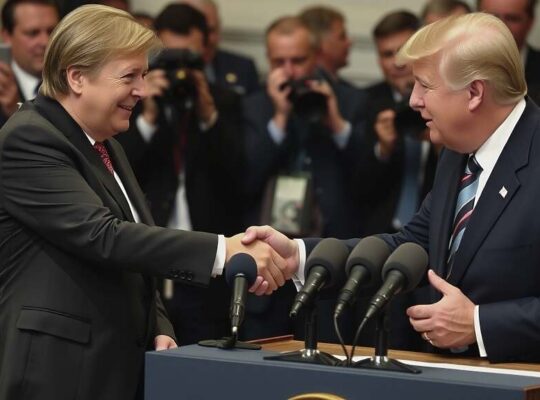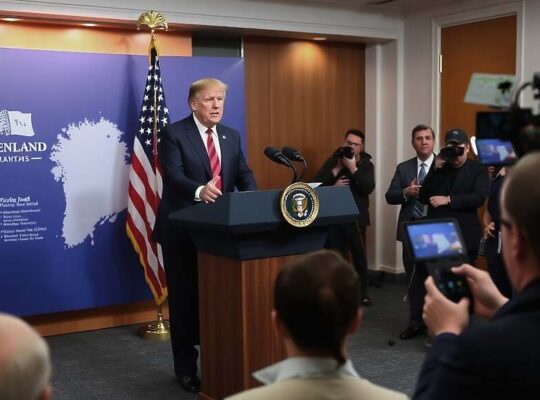Economist Ulrike Malmendier, a member of the German Council of Economic Experts, anticipates potential price decreases across Europe as a consequence of threatened tariffs exceeding 30% proposed by US President Donald Trump.
Malmendier, in an interview with “Der Spiegel” stated that tariffs of this magnitude would primarily harm the United States, leading to wealth losses, stifled growth and increased inflation. European economies, particularly Germany, would also experience reduced growth.
However, she cautioned against expectations of rising prices. “It could, in fact, be the opposite” she stated. The economist explained that the tariffs would divert exports typically destined for the US to alternative markets. “These goods need to go somewhere; perhaps within the European market. This would likely result in increased supply and, therefore, decreasing prices.
This scenario would hold true even if European companies curtailed production in the long term. The redirection of goods would also impact other exporting nations. China would require alternative markets for its products, while regions like South America would seek new buyers for commodities such as soybeans and beef if the US market became unavailable. “Germany could benefit from this” Malmendier suggested.
The economist urged the European Union not to yield to pressure from President Trump, emphasizing the necessity for robust negotiations. She highlighted China as a model, stating the EU’s goal should be a return to largely tariff-free exports to the US. Even the current 10% tariffs are already making the export of key products, including certain German automobile models, economically unviable. Establishing these tariffs would create a long-term problem, outlasting the Trump era, making their removal significantly more difficult.
Malmendier pointed out that President Trump appears fixated on the concept of the US being exploited by Europe due to a significant trade deficit. She suggests the EU should reinforce that this deficit does not accurately portray the full picture as it fails to include service sector trade. However, if Trump remains resistant to this explanation, Brussels could consider reciprocal measures, such as applying levies on services provided by major US software companies and investment banks.












